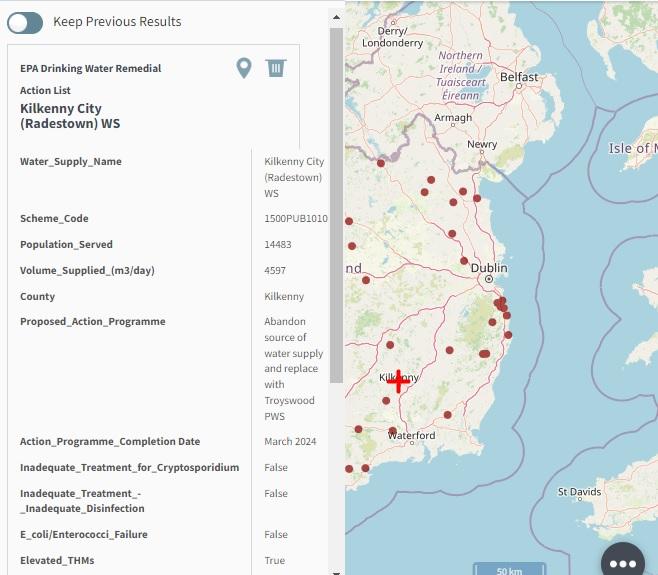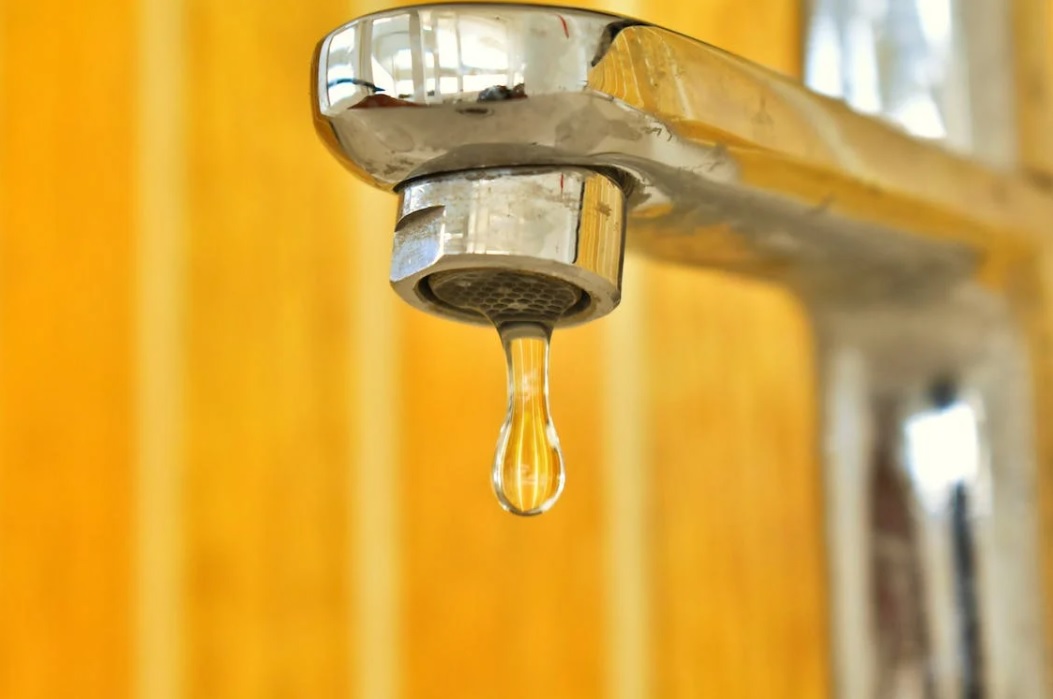Uisce Éireann says it’s taking concerted action at a number of sites to remove risks associated with high levels of trihalomethane (THM).
Kilkenny city’s Radestown water supply, which serves close to 14,500, is listed on the utility’s website as having elevated THMs – it’s been reported it’s one of six Irish areas where the levels exceed european union limits.

The organisation has issued a statement to KCLR News saying projects are underway at locations listed on the EPA’s Remedial Action list for THMs to address the issues either through upgrades or rationalisation of existing treatment plants.
It notes that to date, a Do Not Drink notice has not been imposed on any public water supply due to THM exceedances and states overall water supplies in Ireland are excellent and quotes the most recent EPA report from last year which says public drinking water is safe to drink at 99.7% compliance with chemical and bacterial limits.
Uisce Éireann statement:
“Uisce Éireann continues to prioritise the elimination of trihalomethanes from public water supplies through a proactive campaign of targeting, testing and remediating any supplies at risk.
The vast majority of public water schemes identified in the recent judgement of the European in relation to THM exceedances have now been addressed, with just 5 of the original 74 schemes remaining. And projects are underway at all five locations to address the issues either through upgrades or rationalisation of existing treatment plants.
Uisce Éireann’s enhanced testing and monitoring programme across its 700-plus public water supplies has also enabled the utility to identify a number of additional sites where THM risks exist. There are currently 25 schemes on the EPA’s Remedial Action list for THMs. In all these cases we are taking concerted action to remove these risks through a combination of plant upgrades and enhanced operational controls.
It is important to assure customers on these remaining schemes that water is safe to drink. THMs are chemicals which are formed by the reaction of naturally occurring dissolved organic material in the water and chlorine, which is used for disinfection purposes. Chlorination is an essential step in the production process to ensure harmful bacteria are eliminated from your drinking water. The clear advice from the HSE in relation to THMs and drinking water is that the “benefits of using chlorine to treat our drinking water are much greater than any possible health risk from THMs”. This is also the position of the World Health Organisation (WHO) which states that “…adequate disinfection should never be compromised to control THMs”.
When our monitoring programmes detect THM levels above the allowable limit (100µg/L), Uisce Éireann notifies the Environmental Protection Agency and consults with the Health Service Executive (HSE) to ensure any potential risk to public health is fully risk assessed. To date, a Do Not Drink notice has not been imposed on any public water supply due to THM exceedances.
Overall water supplies in Ireland are excellent, the most recent EPA report published last year, demonstrates that public drinking water is safe to drink (99.7% compliant with chemical and bacterial limits).
Communications were issued in 2018 by Uisce Éireann in relation to water quality, to all customers identified as being on ‘at risk supplies’. The communications issued were approved by the EPA and HSE at that time.
The Remedial Action list is published by the EPA and offers an independent view of water quality and is available on their website (here).
Customers can also find out about the quality of their local water supplies via the Uisce Éireann website www.water.ie”








